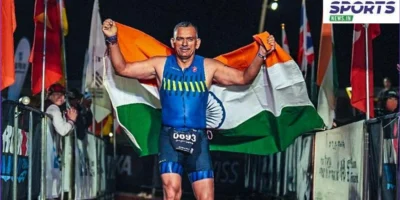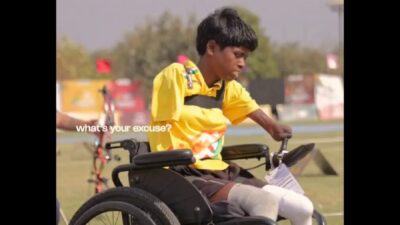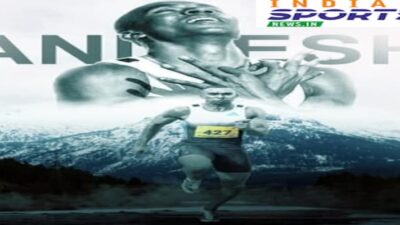Fauja Singh the centenarian athlete who redefined the limits of human endurance and became a symbol of resilience and healthy aging, tragically passed away at the age of 114 in a road accident in Punjab, India. Known globally as the world’s oldest marathon runner, Singh was struck by a car while walking along the Jalandhar-Pathankot highway on Monday afternoon. He sustained a critical head injury and was rushed to a local hospital but succumbed to his injuries by 7:30 pm IST.

Fauja-Singh-the-iconic-runner-who-earned-the-tag-of-world’s-oldest-marathoner-died
Born on April 1, 1911, in the quiet village of Beas in Jalandhar, Punjab, Fauja Singh’s life spanned across more than a century of history, turmoil, and triumph. From witnessing India’s independence to inspiring generations worldwide, his story is one of unparalleled perseverance. Despite facing devastating personal losses, including the deaths of his wife and son, Fauja Singh chose not to retreat into sorrow but instead to run toward a new purpose—literally.

From-witnessing-India’s-independence-to-inspiring-generations-worldwide-his-story-is-one-of-unparalleled-perseverance
From Tragedy to Triumph: The Birth of a Late Bloomer
Remarkably, Singh did not start running competitively until the age of 89. His story took a transformational turn at an age when most people retire from physical exertion altogether. Deeply affected by the loss of his family, he sought a meaningful outlet for his grief. What started as casual jogging soon developed into a serious commitment, and in 2000, at the age of 89, he ran his first marathon—London.

Singh-did-not-start-running-competitively-until-the-age-of-89-His-story-took-a-transformational-turn-at-an-age-when-most-people-retire-from-physical-exertion-altogether
Despite having no formal training and never having worn a pair of running shoes before, Singh completed the 42-kilometer race with a sense of ease and quiet determination that would become his signature style. His community, initially skeptical, began to embrace his achievements. Singh quickly became a source of inspiration, not just for the elderly but for athletes of all ages around the globe.
Record-Breaking Feats and Global Fame
Over the next decade, Fauja Singh ran in nine full marathons across the world, including in London, Toronto, and New York. His personal best was recorded at the Toronto Waterfront Marathon in 2003, where he finished the race in five hours, 40 minutes, and four seconds—an extraordinary feat for a man well into his 90s.
Though Singh never officially held the Guinness World Record due to the lack of a birth certificate from colonial India, his age-defying accomplishments gained widespread recognition. He became known as the “Turbaned Tornado,” not just for his bright Sikh turban but for the energy he exuded despite his advanced years.
He was chosen as a torchbearer for the 2004 Athens Olympic Games and again in 2012 for the London Olympics, symbolizing how sport transcends age, race, and nationality. A marketing campaign by Adidas featured Singh alongside global icons like David Beckham and Muhammad Ali, cementing his status as a global sports legend.
A Voice for Wellness, Sobriety, and Sikh Values
Singh’s commitment went beyond just running. He became a powerful advocate for physical fitness, mental resilience, and social responsibility. In December 2024, just months before his passing,

Fauja-Singh-participated-in-the-two-day-Nasha-Mukt-Rangla-Punjab-march-against-drug-abuse-His-presence-alone-infused-the-movement-with-vitality-and-hope.
“Even at the age of 114, he continued to inspire generations with his strength and commitment,” wrote Punjab Governor Gulab Chand Kataria in a heartfelt Facebook post. “It is heartbreaking to learn that he lost his life today in a tragic road accident. His legacy, however, will forever live on in the hearts of those fighting for a healthier, drug-free Punjab.”
Singh credited his long life to a simple vegetarian diet, abstinence from alcohol and tobacco, regular exercise, and spiritual well-being. He would often say, “The secret to a long and healthy life is to be happy and to keep moving.”
An Enduring Legacy
While Singh officially retired from competitive running in 2013 at the age of 102, he never stopped being active. He continued to walk and jog around his village, mentor young runners, and attend events promoting wellness and community health. His commitment to bettering not just himself but his surroundings left an indelible mark.
“Age is no barrier,” Singh often said. “It’s the mind that limits what the body can do.”
His journey from a grieving widower to a marathon legend is now part of athletic folklore. Several documentaries and books have chronicled his life, highlighting not only his physical feats but the grace, humility, and humor with which he carried himself.
The Final Mile
Fauja Singh’s passing has sent waves of sorrow through his admirers across the world. His body is currently in a mortuary awaiting the arrival of his children, who live abroad. His last rites will be conducted after they return home to Beas.
Tributes have poured in from across the world—from sports federations and health organizations to politicians, celebrities, and everyday runners. All speak to the same truth: Fauja Singh was more than just a marathoner. He was a symbol of unbreakable spirit.

Tributes-have-poured-in-from-across-the-world-from-sports-federations-and-health-organizations-to-politicians-celebrities,-and-everyday-runners
In a world obsessed with youth and speed, Fauja Singh reminded us that slow and steady isn’t just a race strategy—it’s a life philosophy. He showed us that it’s never too late to start anew, never too late to dream, and never too late to change the world, one step at a time.
Remembering the Legend
As the world mourns his death, it also celebrates the extraordinary life he led. Fauja Singh taught us that the finish line is not the end, but rather a checkpoint in an ongoing journey of resilience, discipline, and joy.
He leaves behind more than just marathon medals—he leaves a legacy of hope. Fauja Singh ran his races not for fame, but to inspire; not to compete, but to complete. And in doing so, he ran straight into the hearts of millions.
Click here to watch more!



















Comments